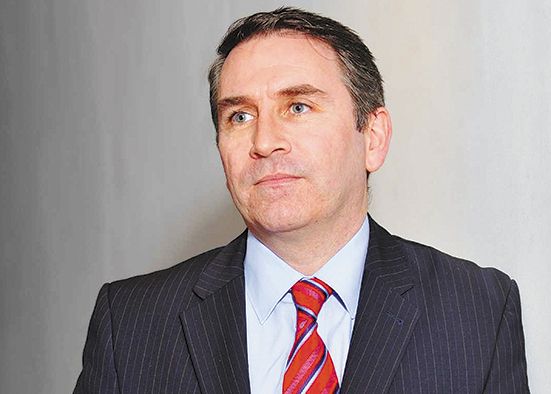Loughinisland survivor blasts victims’ payment
Loughinisland survivor blasts victims’ payment
31 May 2023

A SURVIVOR of the Loughinisland massacre has described the application process for Troubles victims seeking compensation as a “disgrace”.
Colm Smyth was in The Heights Bar in June 1994 watching a World Cup football match between the Republic of Ireland and Italy when Loyalist gunmen burst into the pub.
Barney Green, Dan McCreanor, Malcolm Jenkinson, Adrian Rogan, Eamon Byrne and Patrick O’Hare were murdered, while a number of others were injured, including Mr Smyth, who was shot four times.
Troubles victims are awarded scores for their level of disability when seeking compensation with Mr Smyth awarded just £44 a week.
He was was given a score of just two out of 10, a 20% degree of disablement, after being rated by the Victims’ Payment Board (VPB) which assesses claims for Troubles injuries.
Branding the process a “disgrace”, Mr Smyth said he survived the Loughinisland massacre and was shot four times as he watched six men get murdered.
“I’ve endured 30 years of Post Traumatic Stress Disorder and every applicant should publish their judgement to show the travesty for the insult it is,” he continued.
Applicants to the VPB’s scheme were asked to complete a form detailing dates, location, deion, details of the victim’s presence and how the incident meets their criteria.
Cases are then submitted to an assessing health care professional, after which the VPB makes a determination on eligibility and “if appropriate, amount of award.”
Payouts of between £2,000 and £10,00 per year are then awarded, with a minimum of 14% of permanent disablement required to quality for support.
The level of disablement is made up by combining percentages of both physical and psychological injury judged to be present through the board’s assessment process.
The highest bracket on the psychological framework requires applicants to have “totally incapacitating mental health problems” which may include “persistent delusions or hallucinations.”
With Mr Smyth’s percentage towards the lower end of the scale, his payment comes in at around £44 per week.
He was asked to complete an online video assessment as part of the process, an assessment he said which took almost two and a half hours to complete.
During the assessment, Mr Smyth was asked why he had not gone for counselling earlier, why he had refused medication in the early years and if he had experienced trauma during this time.
By the end of what he described as “interrogation”, he said he had been left in tears.
Mr Smyth said a universal payment should have been applied rather than have victims undergo the assessment process.
He added: “In my opinion, it should be a standard figure for anyone involved in what they call the a Troubles-related incident.
“There is no way to compare one person’s trauma, with anyone else’s trauma and place it on a
scale that shows no understanding of what victims live with every day. We might look and act normal, but we are not.”


